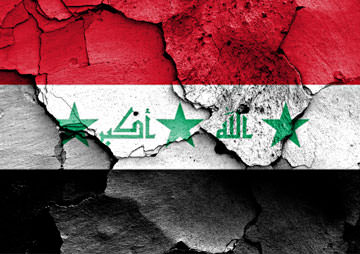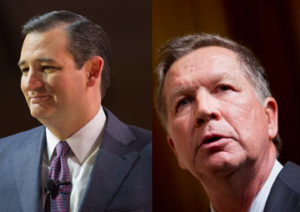Calamity on an ‘Ungrateful Volcano’
Iraq is shattered and 300 U.S. military advisers can't put the pieces back together. So now what? An old saying about the Middle East comes to mind: Things can always get worse. Shutterstock
Shutterstock
Iraq is shattered and 300 U.S. military advisers can’t put the pieces back together. So now what? An old saying about the Middle East comes to mind: Things can always get worse.
The aim of U.S. policy at this point should be minimizing the calamity, not chasing rainbows of a unified, democratic, pluralistic Iraq — which, sadly, is something the power brokers in Iraq do not want.
They have never really wanted it. In 1922, Winston Churchill, then Britain’s colonial secretary, said this about Iraq: “At present we are paying eight millions a year for the privilege of living on an ungrateful volcano out of which we are in no circumstances to get anything worth having.”
President Obama decided in 2011 not to keep thousands of U.S. troops atop that volcano. The official reason is that Prime Minister Nouri al-Maliki balked at securing ironclad assurances that U.S. personnel would not be subject to the Iraqi judicial system. In reality, Maliki was being pressured by his ally Iran not to sign a deal providing for a continuing American military presence. And Obama, an opponent of the war from the beginning, was eager to bring our people home.
Secretary of State John Kerry flew to Baghdad on Monday to continue the search for a political solution. The hope is that Iraq, following elections in April, will form a new government that abandons Maliki’s sectarian policies and seeks to include all of the country’s religious and cultural factions.
Even the sunniest of optimists would have to see this effort as a long shot. Maliki governed unabashedly in the interests of the Shiite majority, which had been oppressed and brutalized for decades under Saddam Hussein. Sunnis have responded by welcoming the jihadist militants who call themselves the Islamic State of Iraq and Syria. Kurds, the other big minority, have taken advantage of the chaos to consolidate their control of the oil-rich northeast.
All these factions are armed. The U.S.-trained Iraqi army folded like a cheap suit at the advance of the ISIS fighters, but the fearsome Shiite Mahdi militia is regrouping to defend Baghdad from the Sunni jihadists. Iran has reportedly sent troops to fight on the government’s side. The Kurds are prepared to defend themselves.
As I said, things can get worse.
The hawks who got us into Iraq in the first place are back, urging U.S. action. But I find it hard to see what could produce a unitary, pacified Iraq at this point short of the deployment of thousands of U.S. troops. And what would they do? Position themselves in the middle to be shot at by Sunnis and Shiites alike? Fight for the Baghdad government alongside the Mahdi warriors and the Iranians?
It is likely that the Sunni community leaders who welcomed the ISIS invasion will soon chafe at living under the strictures of medieval Islam. When this happened in 2008 during the Sunni Awakening, al-Qaeda was routed. In those days, however, the huge U.S. occupation force was still present to clear and hold disputed areas. The Iraqi army has shown it can do neither.
The 300 military advisers Obama is sending to Iraq may be best used as intelligence-gatherers and spotters who will help direct U.S. drone strikes. If terrorists have another potential sanctuary — in Syria and Iraq — from which to plan attacks against U.S. or other Western targets, it is likely that Obama will counter the threat with the same measures he uses in Yemen and other ungoverned badlands: targeted drone strikes.
In 2003, as U.S. forces routed Saddam’s army and rolled toward Baghdad, Gen. David Petraeus turned to Washington Post correspondent Rick Atkinson and famously said, “Tell me how this ends.”
It now appears that the events set in motion by the invasion may end with the redrawing of the Middle East map. ISIS has effectively erased most of the border between Syria and Iraq. The government in Baghdad looks likely to remain in control of a Shiite-majority rump state in the south. The long-held dream of an independent Kurdistan may finally be realized.
Iran has been greatly strengthened as a regional power, but may become bogged down by the need to support the Shiites in Iraq. It is hard to know which is more alarming to neighbors such as Jordan and Saudi Arabia — the advance of ISIS or the growing strength of Iran.
Churchill was right. Despite the sacrifice of so much U.S. blood and treasure, the “ungrateful volcano” looks ready to blow.
Eugene Robinson’s e-mail address is eugenerobinson(at)washpost.com.
© 2014, Washington Post Writers Group
Your support matters…Independent journalism is under threat and overshadowed by heavily funded mainstream media.
You can help level the playing field. Become a member.
Your tax-deductible contribution keeps us digging beneath the headlines to give you thought-provoking, investigative reporting and analysis that unearths what's really happening- without compromise.
Give today to support our courageous, independent journalists.





You need to be a supporter to comment.
There are currently no responses to this article.
Be the first to respond.